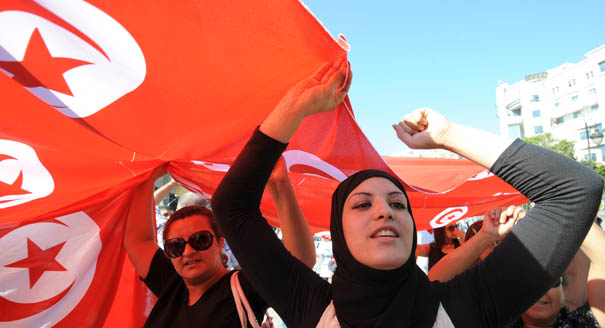Registration
You will receive an email confirming your registration.
Five years after popular protests toppled the regime of Zine el-Abidine Ben Ali, Tunisia continues its transition toward democracy and has established a political dialogue that has been recognized by the international community. However, Tunisia’s transitional successes should not overshadow the challenges associated with its fragile new political system and its inability to respond to the economic and social needs of the Tunisian population. What does the future hold for Tunisia’s fledgling democracy following the split the country’s ruling party Nidaa Tounes and the ongoing power struggle between Islamists and secularists?
The Carnegie Middle East Center brought together Tunisian scholars and political leaders to discuss Tunisia’s future possibilities and the challenges facing the country’s political transition. Carnegie’s Georges Fahmi moderated.
Mohammad Al-Haj Salem
Mohammad Al-Haj Salem is a Tunisian scholar.
Noureddine Arabaoui
Noureddine Arbaoui is the head of Ennahda’s political bureau and member of the executive committee for political party relations.
Hmida Ennaifer
Hmida Ennaifer is a scholar and theologian and a founder of the Islamist movement in Tunisia. He also heads the Tunisian League for Culture and Pluralism.
Georges Fahmi
Georges Fahmi is a visiting scholar at the Carnegie Middle East Center
Hamza Meddeb
Hamza Meddeb is a nonresident scholar at the Carnegie Middle East Center.
